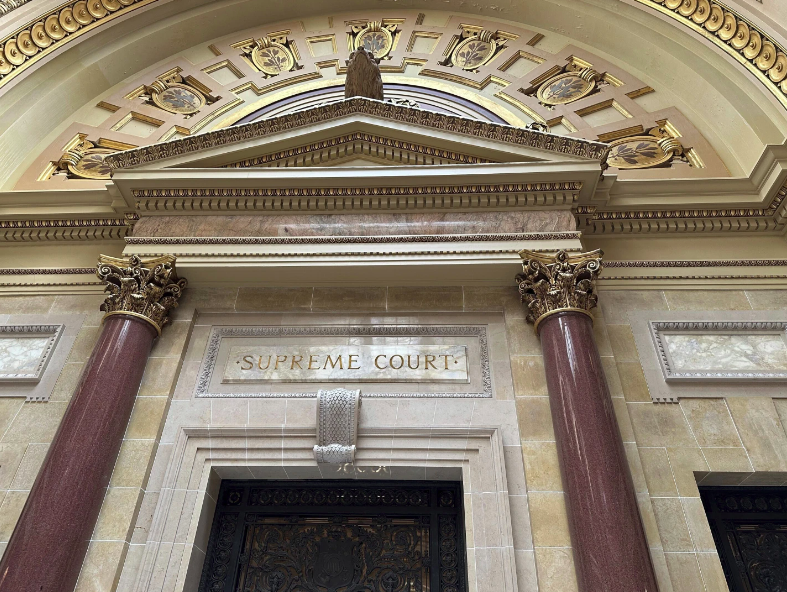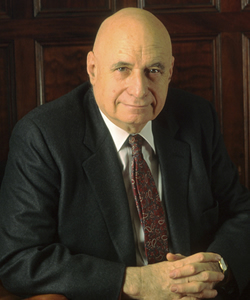On October 8-9, the Religious Freedom project, together with several sponsors, including the British Council, hosted a public dialogue on religious freedom policy and opportunities for transatlantic cooperation on this issue. However, differences among Western democracies are significant. These blog entries further explore this issue, and they also discuss the state of religious freedom in countries that are often the targets of the West’s policies.
By: Peter Berger
In early October I attended an exceedingly interesting conference about religious freedom at Georgetown University in Washington, presided over by Tom Farr and Timothy Shah of the Berkley Center. I gave the keynote address dealing with the relationship of pluralism and religious freedom, based on the theory of pluralism I developed in my recent book The Many Altars of Modernity (2014). (Over the years I acquired a deep appreciation of African wit and wisdom, so I feel free to quote my favorite Zulu proverb, “if I don’t beat my drum, who will?”) The focus of the conference was on the place of religious freedom in the foreign policy of Western democracies, notably the United States and the United Kingdom. I have no expertise in international relations, though I will make some comments about the practical issues that inevitably arise if religious freedom becomes a topic for foreign policy. But first I want to briefly outline how pluralism relates to religious freedom in my own theoretical perspective.
Pluralism means the co-existence of different religions, worldviews, and moralities within the same society, if not overly amicably, at least reluctantly at peace. To maintain such peace, the role of the state is crucial. It must institute and enforce what I would call formulas of peace. There have been several in different periods and different places—such as in the conviviencia between Muslims, Jews, and Christians in the better periods of the caliphate of Cordoba. In modern European history an important formula was the base of the of the Peace of Westphalia, which in 1648 put an end to the Thirty Years’ War during which Catholics and Protestants had succeeded to annihilate a substantial portion of the population of central Europe. It was a territorial formula—the ruler decided what would be the religion of the state, and those who did not like it were expelled or free to emigrate, which was certainly an improvement over being massacred or forcibly converted. But the territorial nature of the formula made it difficult to achieve if the contesting groups could not easily be separated geographically, in which case bloody “cleansing” became a likely scenario, as in the partition of India and the collapse of the Yugoslav state. Failing the Westphalian option, the most practical formula has been some measure of the separation of religion and the state. This could bede jure, as in France or the United States, or de facto, as in England. The state then does not define itself as strongly identified with only one religion and can therefore serve as the religiously neutral arbiter between the groups that might otherwise be at each other’s throats. Thus Queen Elizabeth II is still the head of the Church of England, with the title “defender of the faith,” originally bestowed on Henry VIII by the Pope—of course before Henry’s theological conversion in Anne Boleyn’s bed—but has recently described herself as “defender of all the faiths represented in the United Kingdom.”
The separation of church and state as laid down in the Constitution of the United States has been remarkably successful as a formula of peace. The history of this country is hardly an unblemished record of human rights, but in the matter of religious freedom there is good grounds for self-congratulation. One significant exception is the case of the Mormons, and not only because Joseph Smith, the founder of the Church of Jesus Christ of Latter-Day Saints, was lynched by a fanatical mob in the early days of the religion. When Utah wanted to become a state of the Union, Congress at first refused. The reason was not the rather eccentric contents of the original doctrine; the many other religious movements that also originated in the same region of upstate New York—Adventists, Shakers, the Oneida Community, etc.—did not lack their own eccentricities. Rather, it was Mormon polygamy, which they called plural marriage, that Congress could not tolerate. Fortunately, then and now, the presidency, the supreme authority of the LDS Church in Salt Lake City, has the authority to alter doctrine. It did so, and Utah became a state. (Mormons also became fiercely devoted to monogamy, as long as it is heterosexual. But that is another story.) Religious freedom has not only become a fundamental principle of the Constitution, but a commonly shared value of tolerance, expressed in ordinary language and behavior: “It’s a free country,” “we’ll agree to disagree,” etc.
When I first came to America as a very young man, someone advised me, if I didn’t want to do something, to say that “it’s against my religion.” I asked, “But won’t people ask just what is my religion that forbids my doing this?” I was told, “They wouldn’t dare.” Thus the typical religious institution in America has become the “denomination,” defined by the historian Richard Niebuhr as a church which accepts the right of other churches to exist. However this very cultural feature makes it unlikely that the American form of church/state separation can be universally adopted: Some form of separation, yes; but hardly a translation of the First Amendment into Russian, Arabic, or Chinese.
By law, Congress has mandated that the US government monitor and advocate religious freedom throughout the world. This is not surprising. The United States is by any measure the most religious of all Western democracies now that Ireland and Poland have become influenced by eurosecularity. Citizens vote their values as well as their interests. Thus no fewer than three institutions within the US governmentare supposed to promote religious freedom: The State Department is required to issue an annual report on the condition of religious freedom in every other country in addition to the also required annual report on human rights in general. The US Commission on International Religious Freedom, an independent non-governmental body supported by tax money, issues reports on “countries of concern,” where one has to worry about religious freedom. And finally the US ambassador-at-large for international religious freedom is located in the White House, a position currently held by Rabbi David Saperstein. If one believes in religious freedom as a fundamental human right, as I fervently do, one will not want to quarrel with these measures. How effective they are is a different matter.
America’s enemies are of course enraged if the US government criticizes their actions in the name of moral principles. But some of America’s friends may also be irritated. There is some hubris as one sovereign state arrogates to itself the right to pass moral judgments to every other sovereign state on earth. I once heard a Swiss diplomat express annoyance at the mention of his country in the annual State Department report on human rights. The mention of Switzerland was very brief and very positive. Something like:Switzerland is a democracy, in which the rule of law prevails. There are no reported incidents of… then follows a long list from genocide on down. The Swiss diplomat exclaimed, “Who the hell are you to give me a grade of A?!” But the vicissitudes of power makes it very difficult to inject moral principles into the conduct of foreign policy. The world is full of tyrants who do terrible things. A diplomat is obliged to serve his country’s national interests, which commonly involves having polite conversations with tyrants. Is an American diplomat, in the midst of such a conversation, to inject, “By the way, we think you should stop persecuting the so-and-sos.” I have no inside knowledge how this actually works. I have talked with observers who do know and are skeptical. Samantha Power published an influential book in 2002 with the title A Problem from Hell: Ame
rica and the Age of Genocide. It is a moving critique of American policy in dealing retrospectively with the Armenian genocide during the First World War (the US government is reluctant to annoy Turkey) and the Holocaust when it was actually occurring during the Second (and Washington rejected the suggestion of bombing the railway lines leading to death camps); the book then deals with more recent cases, such as Cambodia and Bosnia. I wonder how Samantha Power feels now, when she is the main US representative at the United Nations, as a member of the Obama administration, whose major concern in the face of many horrors is to avoid “American boots on the ground.”
Churchill was asked how, as a lifelong foe of communism, he could be in an alliance with the Soviet Union. He replied: “To defeat Hitler, I would make an alliance with the devil.” I don’t think he necessarily intended to say that Hitler was worse than Stalin, but Hitler was the more immediate problem. Right now the United States is moving toward various compromises in the Middle East, with the Taliban in Afghanistan and the Assad regime in Syria. Which of our friends will have to be abandoned if these compromises are achieved? Will it be women be in Afghanistan, or the few democrats in Syria? Our principal ally in the region is Saudi Arabia, our principal enemy Iran. From the viewpoint of human rights, certainly of religious freedom, the two are amazingly similar. Religious freedom in Saudi Arabia is zero, in Iran minimal (ask the Baha’is). The Saudis behead homosexuals, the Iranians hang them. There are many tyrants to have polite conversations with. Yet a purely Machiavellian foreign policy would be hard to reconcile with deeply held moral values, and in the long run would not be supported by the American public. The problem of balancing power and ethos is not new, but in the face of the unspeakable atrocities that confront us today it is especially anguished.
Peter Berger is a senior research fellow and professor emeritus of religion, sociology, and theology at Boston University.
This piece originally appeared in the American Interest. It was later republished on November 5, 2015 for the Religious Freedom Project at Georgetown’s Berkley Center for Religion, Peace, and World Affairs.
THE RFI BLOG

How Soccer Reveals Different Meanings Of ‘Secular’ In France And The US

RFI’s Ismail Royer Meets with Delegation from India

Protecting the Unborn, Mothers, and Medical Ethics: The Stakes of Arkansas’ Amendment

Wisconsin Supreme Court Punishes Catholic Charities for Serving Everyone

Wisconsin Supreme Court Decision Truncates Religion
CORNERSTONE FORUM

Public Bioethics & the Failure of Expressive Individualism

Religious Liberty in American Higher Education

Scotland’s Kate Forbes and the March of Secularism

70 Years of Religious Freedom in Sweden: Prospects and Challenges


